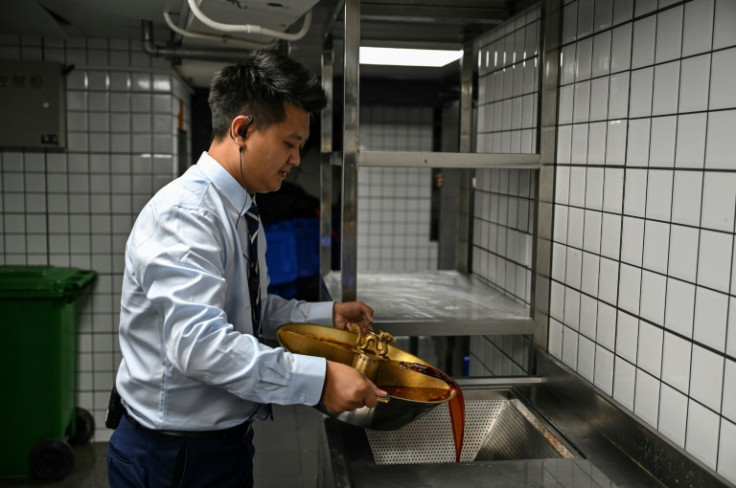'Saliva Oil': Chinese Hotpot Restaurant Caught Recycling Leftovers For New Diners

A hotpot restaurant in Sichuan, China, has found itself in hot waters after authorities uncovered its shocking practice of using "saliva oil." The term refers to recycled chili oil soup left by customers, which was then blended with new oil and served to the restaurant's next batch of customers.
A diner gave a tip-off to government authorities, prompting an investigation. The authorities then busted the restaurant for recycling leftover "old oil" and adding it to its hotpot soup base, reported the South China Morning Post.
The Nanchong Market Regulation Administration, based in southwestern Sichuan, reported Thursday that it seized approximately 11.54 kilograms of recycled beef tallow, a key ingredient in Chongqing and Sichuan spicy hotpot, from the establishment's kitchen.
During the investigation, officials examined four pots containing beef tallow, which appeared significantly different from the packaged variety sourced from legitimate suppliers. They also discovered oil extracted from plates used by previous customers, which had been mixed with fresh oil before being served to new patrons.
Chen, the owner of the hotpot resto, admitted that the practice of repurposing chili oil from leftover soup had been ongoing since September. He defended the method, claiming it enhanced the flavor of the soup and was a desperate attempt to revive the restaurant's "dismal business."
All recycled oil was confiscated by authorities, who have since transferred the case to the local police for further investigation.
While the revelation shocked many on social media, it did not seem to deter the restaurant's loyal patrons. Many defended the eatery online, stating they were already aware of the practice and that it did not influence their decision to dine there.
Some customers even argued that "hotpot without used oil isn't as tasty," suggesting that the unique flavors are a significant draw for repeat visitors.
China's Food Safety Law, which came into effect in 2009, strictly prohibits the reuse of leftover food ingredients. This regulation, considered the country's most stringent food safety measure, was enacted in response to alarming reports of vendors recycling "gutter oil" obtained from restaurant waste and selling it back to eateries.
Under China's Criminal Law, individuals found guilty of mixing harmful raw materials into food for sale could face fines and up to five years in prison.
© Copyright IBTimes 2024. All rights reserved.






















